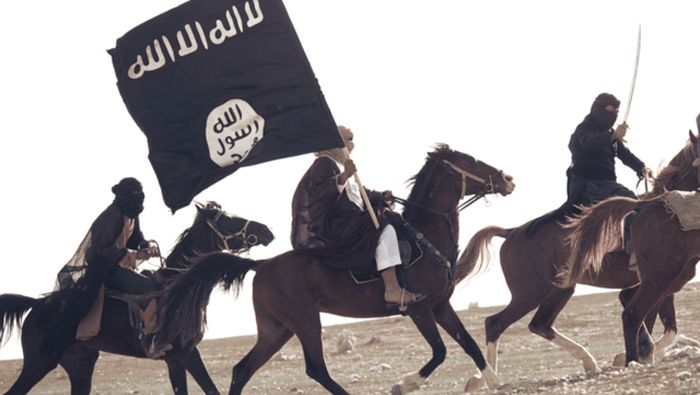Michael Rubin
As US forces, the Syrian Kurds, the Iraqi army and Popular Mobilization Forces, and Iraqi Kurdish peshmerga close in on the Islamic State (ISIS, ISIL, Daesh) in both Iraq and Syria, much is being made about the apocalyptic ideology and symbolism of the looming battle, especially if the showdown is around Dabiq, where many Islamists have predicted there will be a battle against infidels which will herald the collapse of Western civilization.
A showdown on ground so symbolic to Islamists might actually play in favor of those opposed to the vision espoused by radical Islamists. After all, a crushing defeat of the Islamic State on the plains of northern Syria might go a long way to neutralizing the mythology that Abu Bakr al-Baghdadi has created. The late Al Qaeda founder Usama Bin Laden famously observed, “Everyone loves the strong horse” and noted how weak the United States appeared after its 1993 withdrawal from Somalia. If Abu Bakr al-Baghdadi suffers an ignominious defeat, then the idea of a new Islamic caliphate triumphing over the West and ushering in global Islamic rule would be shown empty and misguided. Or would it?
Here’s the problem that the United States has yet to confront: The Islamic State has sowed the seeds for the creation of new caliphs and caliphates with its teaching and its own carefully constructed mythology. Put aside the fact that, for the first time in nearly 100 years, Abu Bakr al-Baghdadi has managed to re-insert the idea of the caliphate into the realm of reality and spark the popular imagination about its feasibility. Nothing else explains how the Islamic State managed to attract more than 30,000 foreign fighters from over 100 countries.
But the issue goes beyond the passive ramifications of Abu Bakr al-Baghadi’s hopefully short-lived caliphate. Journalist Graeme Wood noted back in 2014:
…The Bahraini cleric Turki al-Bin’ali, cites a saying attributed to Muhammad that predicts a total of twelve caliphs before the end of the world. Bin’ali considers only seven of the caliphs of history legitimate. That makes Baghdadi the eighth out of twelve…
Bin’ali, also known as Abu Sufyan Al-Silmi, the grand mufti of Islamic State. If Baghdadi is only the eighth of 12, then there could be four other caliphate before Islamic year 1500 (2076 AD).
It is all well and good for US policymakers to talk about the looming battle for Mosul or Raqqa. There is much less discussion about who and how those cities will be held and administered once the Islamic State disburses and its members seek to fade into the woodwork. And there is even less discussion about how the eventual defeat of Baghdadi and his caliphate also plays into mythology that both have promoted.
Even if the Islamic State is crushed, any celebration should be short-lived. New would-be caliphs will seek to emerge, each espousing even more radical ideology. In order to show their strength, the brutality of these new would-be caliphs will make the Islamic State look like a Quaker summer camp by comparison. Alas, even with such an ideological challenge looming, there appears to be no strategy in place among Western states and moderate Muslim allies to neutralize the theological exegesis driving Islamist apocalyptic thought.







Comments